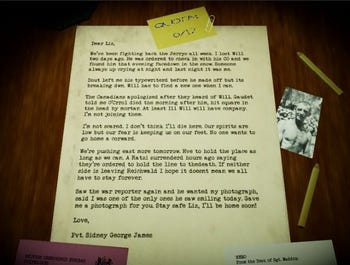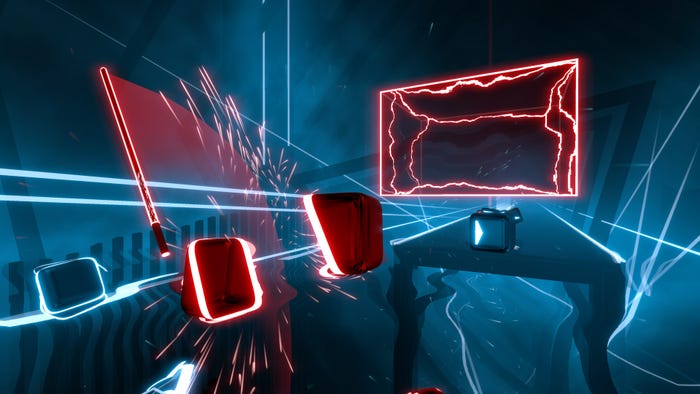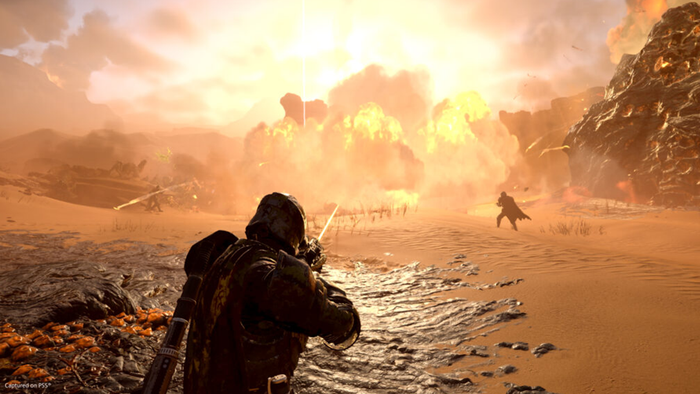
Featured Blog | This community-written post highlights the best of what the game industry has to offer. Read more like it on the Game Developer Blogs.
"Who Killed My Uncle?" Postmortem - The Importance of Historical Research
A postmortem on a historical narrative game and why research is an integral part of the process in order to avoid misinforming your players

Recently I spent roughly a week making a narrative game called Who Killed My Uncle?. During production I ran into a lot of troubles, but let me start from the beginning:

About a month ago I had a little free time and prototyped a quick mechanic, initially about correcting typos on a document, but I also worked in a quick test to experiment with the feeling of censoring said document. People seemed to be more vocal about the idea of the censoring mechanic and it was interesting enough that I wanted to take it further and maybe make a small game about it - but I had no idea what I would make it about. I just knew it would have to be in a historical wartime since that’s usually when we associate postage censorship being commonplace.
Last November I had found out via my grandfather that my great uncle Sidney fought and died in the Spanish Civil War fighting fascists. Ever since, I spent quite some time thinking about him and what he did and how I could possibly turn it into a game, but inspiration never really struck. After building my prototype I realized I could combine the two to make something small, personal and cool.
I made a quick layout of the design, drawing inspiration from other “administration sims” like Papers, Please. I’m only one person and I only had a week, but I’ve also jammed short games out like this by myself before. I knew it would be a linear narrative game since I didn’t have time to develop branching narratives on top of everything else, I also knew I would mostly be relying on free-to-use assets as I do for some of my other jam games as well.

The story was to be about my uncle Sidney and his sweetheart at home in Wales and their letters to one another while he was in Spain before he died. It would consist of two dozen letters back and forth between them, as well as a few letters written by a relative of them in the modern era. I designed and implemented some simple interactions like memo viewing, censoring and stamping which would function as my core ways to interact with the game. The player would have scenes where they played as a censor at a British information bureau which would be censoring the couple’s letters.
I made a couple of scenes establishing the pair of them to begin until, when I was viewing Sidney’s service details (he's listed at the very bottom in the centre), I realized I had overlooked something important: Sidney died single.

This meant I had to reevaluate my plan, which isn’t always a bad thing. I felt pretty stupid for overlooking a detail right in my face. It wasn’t a difficult fix, the woman he was writing to was converted to his sister instead and I removed instances of more...intimate writing I had planned for them to write to one another. I did a little bit more research into the Spanish Civil War to make sure I hadn’t missed anything else glaringly important.
Sure enough I had missed something else glaringly important: During the Spanish Civil War, Britain was a member of the Non-Intervention Committee, a group of countries who explicitly declined participating directly during the war in Spain. Initially, this had confused me because if Britain wasn’t fighting in Spain, how did my Welsh great uncle manage to die there?!

As it turns out, he was serving in what was called the International Brigades, which were groups of volunteers who were recruited (and commonly members) of Communist parties worldwide, sent to Spain on the Soviet Union’s dime. This was a revelation to me not only because it meant my great uncle was mostly likely a communist with communist ideals, but also because it meant even if he could send letters back to Wales it’s unlikely the British would even be censoring them.
Obviously, the crux of the entire game relied on censorship and the writing of letters: two things that likely wouldn’t have taken place at all if Britain wasn't directly involved. I had a choice to make: do I continue with the game knowing full well it’s glaring historical inaccuracies, hoping the audience doesn’t notice but possibly misinforming those who played it, or do I rewrite everything in a more suitable time and location, but one which doesn’t relate as directly to my great uncle? I mulled it over for a night but given I only had a week, I had to make the choice fast and continue with development.

In the end, I decided to rewrite the narrative, setting it in WWII in 1945, where censorship would be much more commonplace. I knew with the sudden change and lack of time I had to research the 53rd Welsh Infantry in WWII that historical inaccuracies would still exist, but on a more minor scale. I was less versed on dates and operations in WWII than I was the Spanish Civil War by then, but most of what I got wrong would be relegated to smaller things like specific dates and operational details. The new game would still feature my great uncle as a character, but in my mind it isn'’t really him - he died 7 years before the events of this new narrative. A part of me wasn't sure I wanted to release it at all for fear of any historical inaccuracies whatsoever, but at some point I knew it was never going to be perfect.
Although I wish the rewrite hadn’t lost the more personal, direct story to him, I knew that a game full of inaccuracy and spreading misinformation about history wasn’t one I wanted to create either, especially when it can be hard for people to find the proper information nowadays anyways.
As a result, I think the game is more digestible for a wider audience since WWII has affected more people than the Spanish Civil war, but it isn’t quite the telling of my uncle’s story I set out to make.
Read more about:
Featured BlogsAbout the Author(s)
You May Also Like













